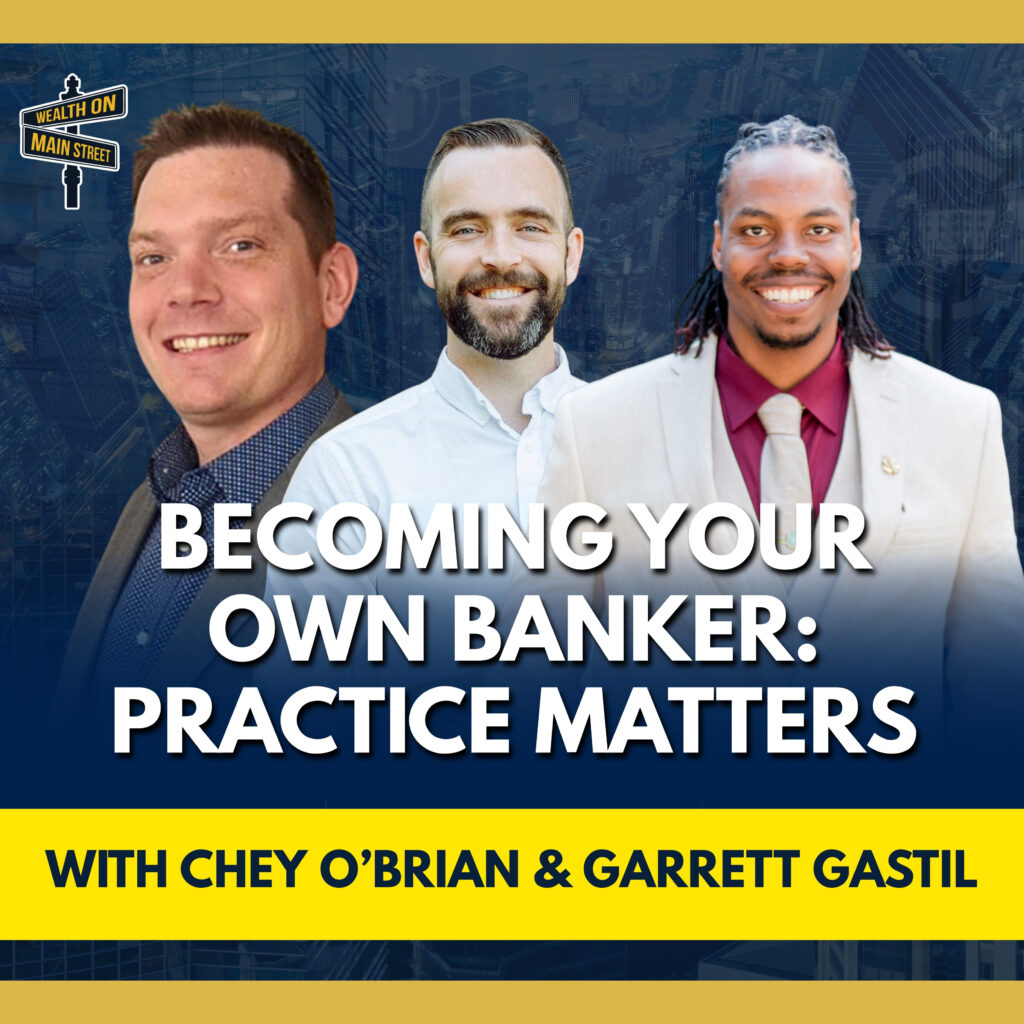
When families first discover the Infinite Banking Concept (IBC), they often ask the same essential questions. What’s the real benefit of policy loans? Do loan repayments grow the policy? Should every dollar flow through the system?
In this episode of Wealth On Main Street, Richard Canfield is joined by US Agents Chey O’Brien and Garrett Gastil to break down some of the most common Infinite Banking FAQs. Together, they explore Nelson Nash’s “Becoming Your Own Banker“ and share how to apply its lessons in everyday life.
Premiums vs. Loan Repayments: What’s the Difference?
One of the biggest questions clients ask:
“What’s the benefit of flowing money back through loan repayments? It doesn’t grow the policy, it just gives me access to capital again.”
Here’s the answer:
- Premiums are the only thing that makes your policy grow.
- However, loan repayments don’t grow the policy; they train you to be a good banker instead.
Repaying loans is about stewardship and discipline. Nelson Nash called this ‘Don’t steal the peas.’ In simple terms, always return capital to your system so it’s ready for the next opportunity.
Habits, Practice, and Repetition
Infinite Banking isn’t a “set it and forget it” product; it’s a lifestyle. Just as an athlete improves with practice, families can also strengthen their financial systems through repetition.
Some people choose to run every expense through their policies. On the other hand, others, like one colleague mentioned, take larger loans quarterly to fund household expenses.”
The key lesson: Consistency matters more than perfection.
The Money Pool & Why Control Matters
Nelson Nash’s Money Pool diagram (page 26) shows how an insurance company works:
- Premiums flow in.
- Expenses, taxes, and claims flow out.
- Investments and policy loans keep money working.
As a policyholder, you’re a co-owner of the company. That means:
- You have the first right to your capital as collateral.
- Unlike banks, your access cannot be frozen in a crisis.
- Your money continues compounding even when you borrow against it.
This level of control is what makes IBC more reliable than HELOCs or CDs.
The Twin Sisters Example
On page 45 of Becoming Your Own Banker, Nelson compares two sisters:
- One finances cars using CDs at her local bank.
- The other uses a dividend-paying whole life policy.
Both self-finance cars, but only the sister with IBC has:
- Ownership in her system.
- Total control without penalties.
- Long-term growth alongside borrowing.
The lesson? You can “bank” with other tools, but Infinite Banking is the most efficient tool available.
Key Takeaways from the Episode
- Premiums grow your policy. Loan repayments build banking discipline.
- Habits matter. Repetition makes Infinite Banking second nature.
- Control is key. Unlike banks, policies can’t be frozen or called due.
- Efficiency wins. Infinite Banking is the most effective tool for long-term wealth accumulation.
Conclusion
Infinite Banking is simple, but not always easy. However, the real challenge is building the right habits. As a result, families must practice consistently and use the most efficient system available.
As Chey, Garrett, and Richard remind us, you don’t have to run every dollar through a policy. What matters is creating a system that works for your family, staying disciplined, and remembering that control is your most significant financial advantage.
Ready to see if Infinite Banking is right for you? Book your call with Ascendant Financial today.
WEALTH ON MAIN STREET LINKS
- Learn more about the Infinite Banking Concept.
- Explore more episodes on the Wealth On Main Street Podcast.

